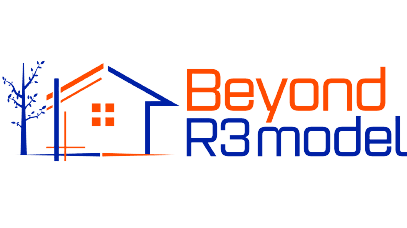Trends in Modern Home Building

Posted on 26 Sept, 2025
In modern home building, the latest trends reflect a shift towards mindful design, high-tech functionality, and a strong connection to nature. Homeowners and builders are prioritizing customization and efficiency to create living spaces that are both beautiful and genuinely support a modern lifestyle. Here's a look at the design trends shaping today’s new homes.
The evolution of floor plans: From fully open to flexible zones
For years, the open floor plan was king, but a desire for more privacy and defined spaces has led to a major evolution in how we structure our homes.
- Semi-open layouts: The new compromise is a layout that uses architectural features like archways, partial walls, or built-in shelving to create distinct zones within an otherwise open area. This approach provides separation for activities and controls noise without sacrificing natural light.
- Purposeful rooms: In a post-pandemic world, homes need to work harder. Buyers are increasingly valuing "third spaces," which are smaller, enclosed areas for specific uses, such as a cozy reading nook, a meditation room, or a private home office.
- The return of the formal dining room (with a twist): The traditional, single-use dining room is making a comeback, but it’s often designed to be multi-purpose. It can serve as a library, art studio, or extra workspace when not in use for meals.
Embracing the outdoors: Seamless indoor-outdoor living
Today’s homes are designed to extend beyond their four walls, turning outdoor spaces into functional living areas.
- Integrated spaces: Retractable glass walls, large sliding doors, and seamless flooring transitions blur the line between indoor and outdoor areas. This creates a more expansive feel and invites fresh air and natural light inside.
- Fully equipped outdoor rooms: Outdoor kitchens are more popular than ever, featuring built-in grills, prep counters, and comfortable dining areas for entertaining. A covered roof overhang or pergola extends the usability of these spaces into all seasons.
- Cohesive design: To create a unified environment, builders use consistent color palettes, furniture, and materials that echo the home’s interior design.
Sustainability and wellness: Building smarter and healthier
Green living is no longer a luxury—it's a baseline expectation. Modern home design focuses on sustainability and health-centric features that benefit both the planet and the homeowner.
- Eco-friendly materials: Demand is growing for sustainable and renewable materials like recycled steel, fast-growing bamboo for flooring, and cross-laminated timber. Hempcrete and self-healing concrete are also emerging options.
- Biophilic design: Connecting occupants to nature through design is a top priority. This is achieved by maximizing natural light with large windows, incorporating indoor plants, and using organic materials and earth-toned color palettes.
- High-performance features: Energy efficiency is a key consideration. Builders are integrating better insulation, energy-efficient windows, and smart systems to reduce utility costs and carbon footprints.
Smart home technology: Automation for comfort and efficiency
Smart technology is evolving from a novelty into a foundational element of home building, with systems becoming more integrated and intuitive.
- Predictive AI: The next generation of smart homes uses artificial intelligence to learn your routines and anticipate your needs. AI can automatically adjust lighting and temperature based on your schedule, making automation feel seamless.
- Universal connectivity: Compatibility issues are being solved by protocols like Matter, which allows devices from different brands to communicate effortlessly. This creates more reliable and future-proof smart home systems.
- Integrated wellness: Health-focused technology is moving into the home. Sensors monitor air and water quality, and smart systems can adjust the environment for better sleep and overall wellness.
- Advanced security: Home security is becoming proactive. AI-powered cameras can differentiate between family and strangers, and integrated systems offer real-time monitoring and advanced threat detection.
Architectural style: Warmth meets modernism
Architectural styles are seeing a mix of retro revival and new warmth, moving away from cool, stark modernism.
- Retro-modern fusion: A mid-century modern influence is back, featuring clean lines and warm wood tones, blending classic charm with contemporary flair.
- Rounded forms: Gentle curves are softening harsh angles in architecture and design. Expect to see more arched doorways, rounded furnishings, and curvaceous built-ins, creating a welcoming and cozy feel.
- Built-in character: Homebuyers want character built into the home. Custom range hoods, detailed millwork, and unique architectural features are being used to create focal points and personalize living spaces.
Get in Touch
How Can We Help You Today?
Our team of experts is here to cater to your unique needs. We are dedicated to providing you with exceptional service and a personalized experience. Contact us today by sending a message, and we'll promptly respond with a free estimate tailored to your project. Your satisfaction is our priority, and we look forward to assisting you soon.
